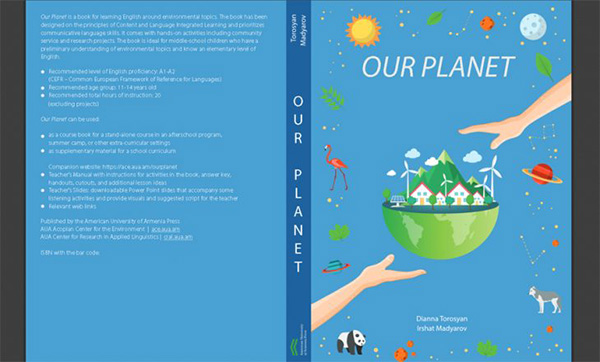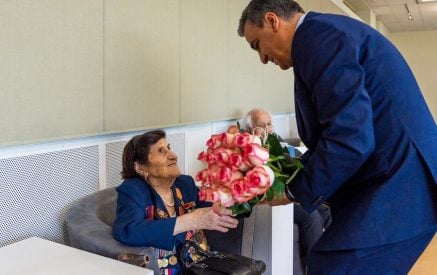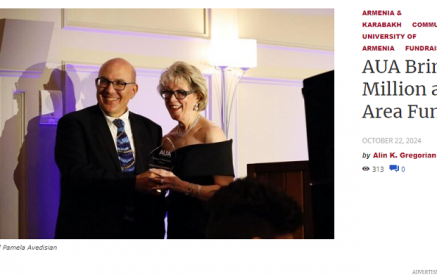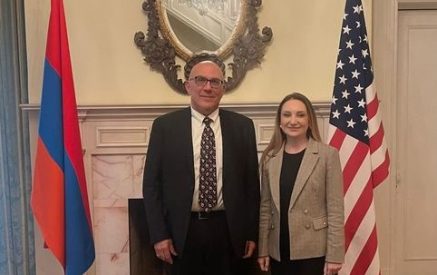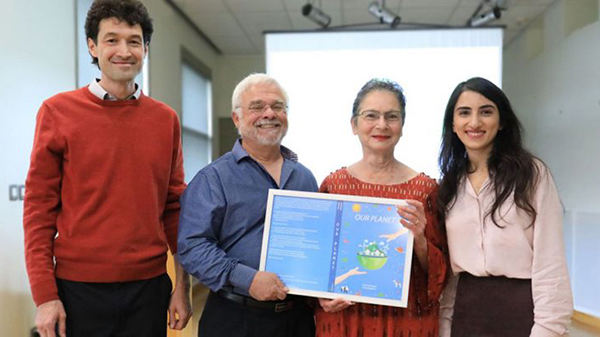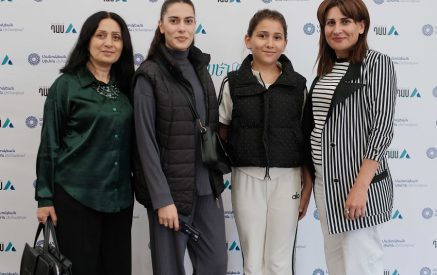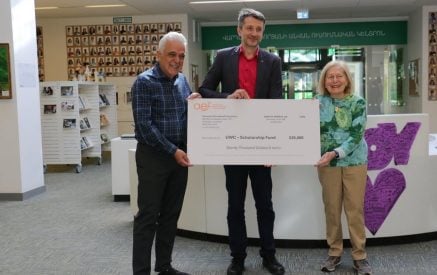YEREVAN, Armenia – On October 18, 2019, the American University of Armenia (AUA) Acopian Center for the Environment and the AUA Center for Research in Applied Linguistics (CRAL) hosted a reception and presentation of a forthcoming elementary level English-language textbook called “Our Planet.”
The book is authored by Diana Torosyan (MA TEFL ‘16) and Dr. Irshat Madyarov, chair of the Master of Arts in Teaching English as a Foreign Language (MA TEFL) program. It will be published by AUA Press in early 2020.
Present at the event were benefactors Linda Shahinian and Herb Schiff whose generous contribution to the AUA Acopian Center made the project possible.
“A few years ago Linda and Herb made an unrestricted donation to the AUA Acopian Center. The only thing Linda requested was seeing a tangible result. Five years later we are pleased to have a high-quality textbook that aligns English-language learning with environmental education,” remarked Alen Amirkhanian, director of the AUA Acopian Center.
Read also
In the scope of her MA TEFL capstone project, Torosyan embarked on the mission of creating a content-based course for teaching English on environmental topics. Under the supervision of Dr. Madyarov, she managed to develop her work into a thoroughly elaborated textbook. “For the ten years I have been here, it is one of the most stellar capstone projects in the MA TEFL program. I want to thank Diana for raising the bar so high for the rest of her peers,” noted Dr. Madyarov proudly.
“Our Planet” is based on Content and Language Integrated Learning principles prioritizing communicative language use and support for learning school subjects. It is comprised of three units each focusing on a certain environmental aspect: The Earth’s Surface, The Earth’s Natural Resources, and The Earth’s Atmosphere. The book is designed for middle-school students aged 11-14 who have an elementary level of English proficiency. It can be used both as a stand-alone course book or as a supplementary material for a school curriculum.
Torosyan revealed the inspiration behind the book: “The environmental course taught by Alen Amirkhanian that I took during my studies at AUA was what sparked my interest in environmental issues. I hope that this textbook will make our school children interested in the environment too. It will help us to educate our children about the impact of climate change that we can already feel.”
“I think it’s a great project. Through this book children in the city and in the villages will learn about the environment, they will take these ideas home with them. The book has project assignments that should be done in their communities and households. They will learn how to save water in their houses and how to deal with trash in their communities. I see this as a big change for Armenia. Thank you for this idea and for carrying it through!” said Shahinian who also was one of the copy editors of the book.
The course book, teacher’s manual, and teacher’s slides are available online on the AUA Acopian Center’s webpage. A research report can also be found on the webpage. It summarizes the research outcomes of the project piloted among forty-two middle-school children in Hatsik and Karakert secondary schools.
Founded in 1991, the American University of Armenia (AUA) is a private, independent university located in Yerevan, Armenia, affiliated with the University of California, and accredited by the WASC Senior College and University Commission in the United States. AUA provides local and international students with Western-style education through top-quality undergraduate, graduate, and certificate programs, promotes research and innovation, encourages civic engagement and community service, and fosters democratic values.




















































